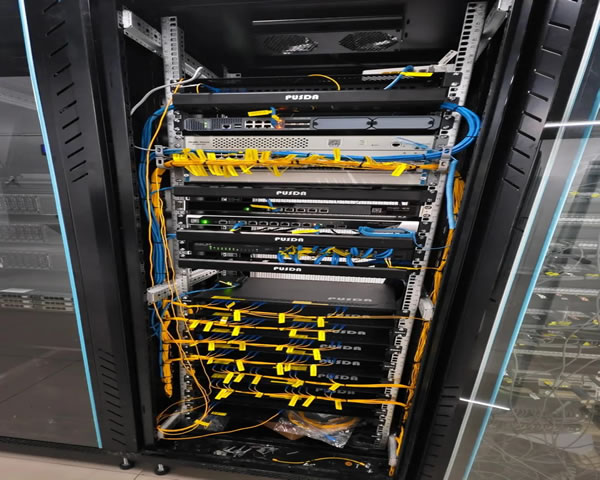in today's digital age, the choice of ip address is crucial for network applications. especially in an international city like hong kong, different types of ip addresses have their own characteristics and applicable scenarios. this article will delve into the main differences between hong kong native ip and broadcast ip to help readers better understand the application and importance of these two ip addresses.
hong kong native ip refers to ip addresses registered locally in hong kong. these ip addresses are usually allocated directly by hong kong's internet service provider (isp). native ip is characterized by low latency and high stability, and is suitable for application scenarios that require high real-time performance, such as online games and live video broadcasts. in addition, native ip also performs well in network security and data transmission, which can effectively reduce the risk of being attacked.
broadcast ip is a special ip address that is usually used to broadcast data packets to all devices on the same network. the usage scenarios of broadcast ip addresses mainly include device discovery and information transfer within the lan. in hong kong's network environment, broadcast ip can be used for internal network management and maintenance, but its application in the internet is relatively rare because it is not suitable for cross-network data transmission.

first, functionally, hong kong native ip is a unique address used to identify and locate a device, while broadcast ip is an address used to send information to all devices on the network. secondly, in terms of application scenarios, hong kong native ip is suitable for services that require stable connections and high bandwidth, while broadcast ip is mostly used for device management and information sharing on lans. in addition, native ip performs better in network security, while broadcast ip is vulnerable to network attacks and information leakage risks.
from a network performance perspective, hong kong native ip usually has better stability and lower latency, which makes it perform well during data transmission. due to its broadcast characteristics, broadcast ip may cause network congestion and affect overall performance. therefore, when choosing an ip address, if you are pursuing high performance and low latency, hong kong native ip is undoubtedly the better choice.
in terms of network security, hong kong’s native ip can provide higher security due to its specific geographical attributes and data transmission paths. due to the broadcast characteristics of broadcast ip, all devices connected to the same network can receive the sent information, thus increasing the risk of being attacked. therefore, for users who need to protect privacy and data security, it is obviously more appropriate to choose hong kong native ip.
when choosing hong kong native ip or broadcast ip, users should evaluate based on their own needs. if you need a high-performance network connection, it is recommended to choose hong kong's native ip; if you are only doing device management and information sharing within the lan, broadcast ip may be more suitable. in short, understanding the characteristics and application scenarios of these two ips will help users make more informed choices.
by discussing the main differences between hong kong native ip and broadcast ip, we can see that there are significant differences between the two in terms of functions, application scenarios, network performance and security. for network applications that require high stability and security, hong kong native ip is a better choice. broadcast ip is suitable for simple information transmission within the lan. we hope this article can help readers better understand these two types of ip addresses and provide guidance for their network choices.
- Latest articles
- Do You Dare To Use German Luxembourg Server Security Analysis?
- Reasons And Recommendations For Choosing Southeast Asia And Cambodia Cloud Servers
- Alibaba Cloud Us Server Price Analysis And Preferential Information
- Analysis Of Uses And Industry Applications Of Hong Kong’s Native Ip
- Detailed Analysis Of The Benefits And Advantages Of Hong Kong Server Hosting
- Discover The Reality Of Whether There Are Google Servers In Thailand
- Advantages And Price Analysis Of Server Rental And Hosting In The United States
- How Effective Korean Kt Servers Can Improve Your Online Experience
- The Reason Why Hong Kong Site Group Has Few Servers But Many Choices
- How To Choose The Best Malaysia Dial-up Vps
- Popular tags
-
Is Baidu's Hong Kong Computer Room Cloud Hosting Service Worth Investing In?
This article discusses the investment value of Baidu's cloud hosting service in Hong Kong computer rooms, analyzes its advantages, performance, reliability and applicable scenarios, and provides reference for potential investors. -
Is There Any Activity In The Hong Kong Site Group And How To Get The Latest Information
Learn about the latest activity information of Hong Kong website groups, master the methods to obtain the latest updates, and improve the website SEO optimization effect. -
Alibaba Cloud Hong Kong Server Double Eleven Promotion Is Coming
Alibaba Cloud Hong Kong Server Double Eleven Promotion comprehensively analyzes the advantages and choices of promotional activities and helps enterprises transform digitally.


